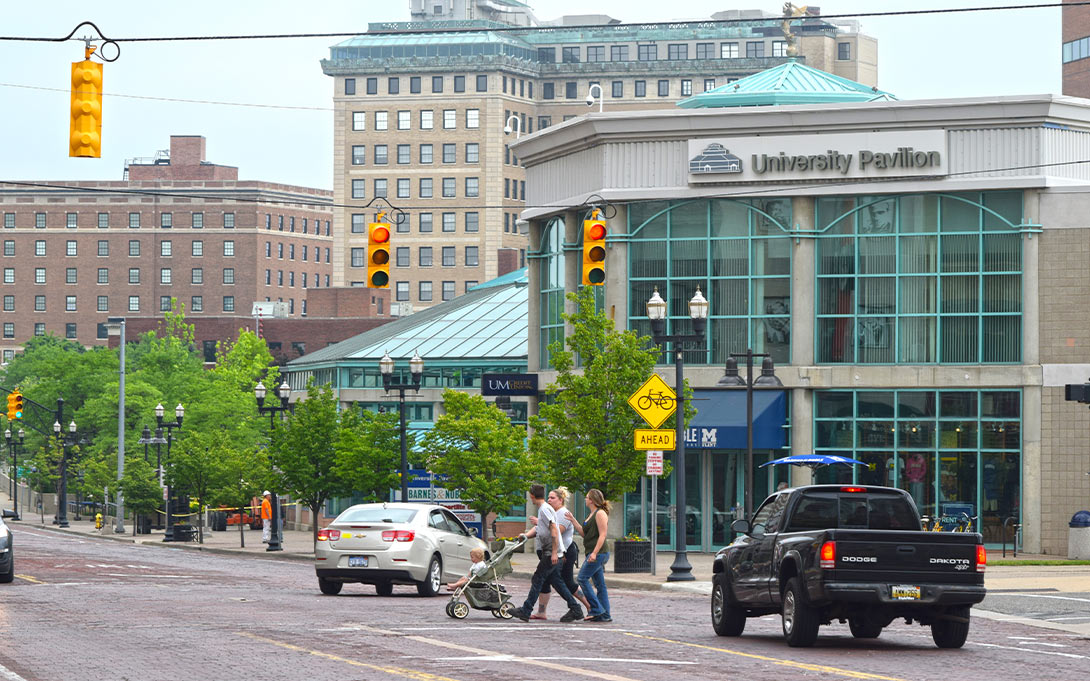
A group of local leaders and public health researchers are sharing their process for responding to racism as a public health crisis, with the goal of supporting other municipalities and organizations in addressing the links between racism and health outcomes.
The Beyond Rhetoric project, which launched a new website with anti-racism resources, began in 2020 in response to Genesee County commissioners passing a resolution that formally recognized racism as a public health crisis. Genesee County, which is home to more than 400,000 people and includes the city of Flint, is among the hundreds of municipalities across the country that have acknowledged how racism contributes to disparate health outcomes for people of color compared to white people.
To guide the efforts in Flint, Lisa Lapeyrouse, associate professor in the Department of Public Health and Health Sciences at the University of Michigan-Flint, joined forces with Kent Key, executive deputy director of Community-Based Organization Partners in Flint and assistant professor in the Division of Public Health at Michigan State University's College of Medicine.
With support from U-M's Poverty Solutions, Lapeyrouse and Key convened a research team to work with community members to identify evidence-based practices and policies that promote the health and well-being of people of color.
"Like the project name suggests, we wanted to ensure this anti-racism work went 'beyond rhetoric' and contributed to meaningful improvements in health outcomes for Genesee County residents of color," said Key, a Flint native who drafted the resolution passed by Genesee County.
"Racism influences all facets of life from where we live to where we send our kids to school, where we shop for groceries, the environmental hazards we're exposed to and our ability to access quality health care. All of those factors impact health."
Beyond Rhetoric started by forming a 13-person Community Action Council to act as the decision-making body in outlining a plan to address racism as a public health crisis in Genesee County. The research team used a diversity index tool to recruit community leaders, which also is featured on the project website.
Drawing on themes from prior community dialogues on race and racism, the Community Action Council drafted a strategic plan that identified the racist policies and practices that impact the health and well-being of people of color and proposed ways to change those practices. Through focus groups, residents offered feedback on the strategic plan and recommended additions.
The priority areas that emerged span education, employment, finance, health care, housing, law enforcement and politics. Some of the recommendations in those priority areas include hiring more health care professionals of color, reforming school discipline policies and making community services accessible to people with disabilities and people with limited English proficiency.
"We really wanted this to be a community-engaged process, so there would be momentum and buy-in to get the work done," Lapeyrouse said. "Overall, people were really supportive of it and thought the plan was very comprehensive."
Now, the Beyond Rhetoric research team is recruiting people to join Community Action Workgroups that will implement the recommendations. They're reaching out to organizations already involved in anti-racism work in priority areas identified in the strategic plan.
The research team is sharing what they learn on their website, where they've created a searchable database of anti-racism resources ranging from peer-reviewed journal articles to videos, podcasts and magazine articles. Lapeyrouse said the materials are suitable for a variety of people, including teens and young adults, parents, academics, educators and community activists.
This article was written by Lauren Slagter of Poverty Solutions and Jared Wadley of Michigan News.
